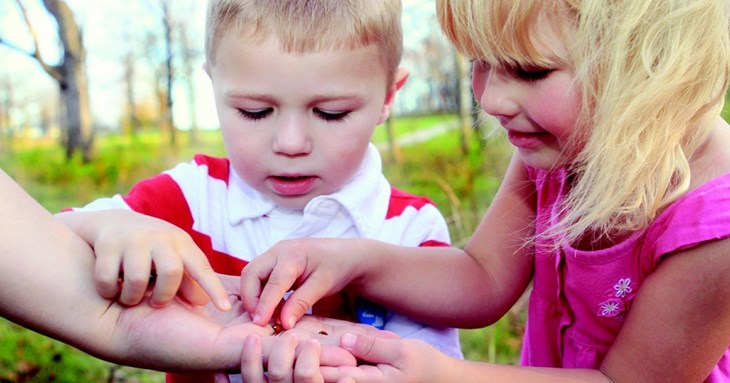Minibeast safari in Exeter will put urban nature under the microscope
Published: 13 October 2022

Families can go on a minibeast safari at a fun event which puts Exeter’s urban ecosystems under the microscope.
The free, two-hour workshop will investigate the insects living in the city and their habitats. Families will learn how to identify trees and different types of insects and will discover what plants and insects look like close-up.
The workshop, on Saturday 12 November, takes place at St Luke’s University Campus in Heavitree Road. All families will receive a free magnifying glass and full-colour, all-weather identification guide to garden minibeasts.
People are spending less time in nature, as lifestyles become more sedentary. This is leading to low knowledge and awareness about local biodiversity, particularly plants and invertebrates.
Research shows that connecting with nature is hugely beneficial for our physical and mental health. Learning about local biodiversity also helps us to better protect our environment.
The event is led by Dr Bethan Stagg from the University of Exeter, who is leading research into how to spot and teach “uncharismatic” biodiversity in local environments – the flora and fauna we see every day in our towns and cities but often ignore.
Dr Stagg was formerly a learning technologist for the Field Studies Council, the UK’s leading organisation for biodiversity education.
Dr Stagg said: “I’m really looking forward to the event. We’ll be setting natural “pitfall” traps to see which bugs fall in, and then using microscopes to look at them under the microscope. Insects are great and can be found near everyone’s home, but they can be ignored.
“I want to show people of all ages how fascinating they are and how much fun nature there is to explore locally everywhere.”
The event is open to all but will be of particular interest to families with primary-aged children; teachers and other educators that wish to build their confidence in sampling and identifying biodiversity with children.
There are two sessions, one from 10.30am – 12.30pm and another from 2pm – 4pm. There is space for 12 families or individual adults per session, and places will be allocated on a first come first served basis.
For more information and to book a place visit the Festival of Social Science website
